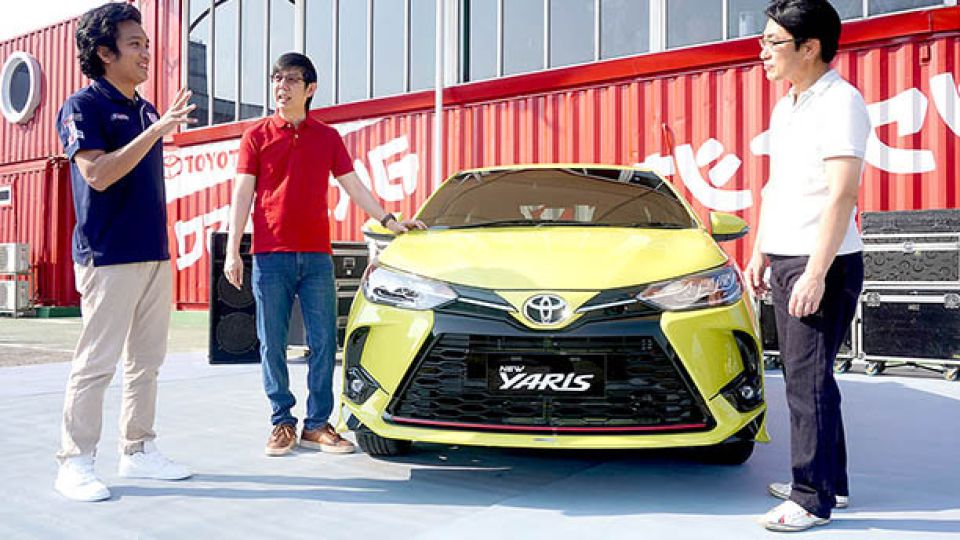October 17, 2022
JAKARTA – The hike in the prices of subsidized fuels early last month has done little to hamper car sales, experts and industrialists say, as eased COVID-19 restrictions have paved the way for growth.
According to a report from the Association of Indonesian Automotive Manufacturers (Gaikindo), domestic car sales were up 19 percent year-on-year (yoy) and 3.1 percent month-to-month (mtm) to total 99,986 units in September.
Year-to-date (ytd) sales had increased 20.8 percent yoy to 758,216 units, while cumulative ytd sales were also up 0.4 percent compared to the first nine months of 2019. The figure was even higher compared to September 2019, with sales growth reaching 7.3 percent.
“I gotta say, ‘Wow!’ This is a real indication that economic growth is very good. Why? Because [cars are] not a basic need,” automotive expert Bebin, who is also a former executive of PT Hyundai Mobil Indonesia, told The Jakarta Post on Friday.
Sales of two-wheel drive (2WD) cars in September, comprising 56.9 percent of the total market share, were up 19 percent yoy to 56,826 units, and 12 percent higher than the figure in September 2019.
Meanwhile, cumulative 2WD sales had increased 23 percent yoy to 431,386 units, and 4 percent higher than in the first three quarters of 2019.
Sales of fuel-efficient and affordable 2WD cars, which have engine capacities below 1,200 cc, were up 32 percent yoy to 18,469 units in September, but still 4 percent lower than the figure in September 2019.
Cumulative sales of cars in this category, which makes up 17 percent of the market share, were up 17.1 percent yoy to 128,664 units, but 17 percent lower than the figure for the same period in 2019.
Truck sales increased 27 percent yoy to 9,199 units, and up 6 percent higher compared to the same month in 2019. Meanwhile, ytd truck sales increased 38 percent yoy to 66,103 units, but slightly lower at 1 percent less than the figure for the same period in 2019.
“There is pent-up demand due to the pandemic condition before, including financial challenges such as tight requirements for leases and banks. The real sector was also battered back then, but the demand is actually real,” Bebin said.
As regards international trade, Indonesian automotive exports grew 115.3 percent to 48,545 units in September, up 40 percent compared to September 2019.
Cumulative ytd exports were up 61.1 percent yoy to 334.489 units, up 0.7 percent compared to total car exports in 2019.
Meanwhile, imports in September were up 83.3 percent yoy to 8,760 units, or a growth of 38 percent compared to the same month in 2019. Cumulative imports grew 57.6 percent yoy to 59,125 units, up 3.4 percent compared to September 2019.
“Indonesian car products are much better at adjusting to international standards compared to before, such as adjusting to the European standards” Bebin added.
Toyota, which has the largest share of the domestic market, however, saw its September sales contract 1.8 percent yoy to 33,449 units, but this was still an increase of 5 percent compared to the same month in 2019.
PT Toyota Astra Motor marketing director Anton Jimmi Suwandy said that the impact of the fuel hike on the automotive industry should be viewed in terms of the macroeconomic impacts.
“For the short term, what we should anticipate from the fuel factor is the possibility of switching to another model within Toyota, and this can usually be different per segment. Some may not be affected by the fuel [hike], but maybe some can switch,” Anton told the Post on Friday.
Honda, which has the third largest market share in Indonesia, saw its sales skyrocket 287.3 percent yoy in September to 13,394 units, up 7 percent from September 2019.
PT Honda Prospect Motor marketing director Yusak Billy expressed hope that fuel prices would return to normal “as soon as possible”, but acknowledged that solid economic growth in the 5 percent range had contributed positively to the automotive industry.
“For us, the limited supply of components due to [the global] shortage of semiconductor chips has greatly affected wholesalers in our distribution network,” Yusak told the Post. “So our focus now is on how to get more component supplies so vehicles can be delivered to consumers as quickly as possible.”
When the pandemic emerged in early 2020, domestic car sales were significantly hit by the measures to curb COVID-19, with total car sales contracting 48.5 percent to 532,407 units.
Last year, transmission of the Delta variant battered the country’s economic recovery, and although overall car sales increased 66.8 percent to 887,202 units, this was still a 13 percent contraction compared to the figure in 2019.


